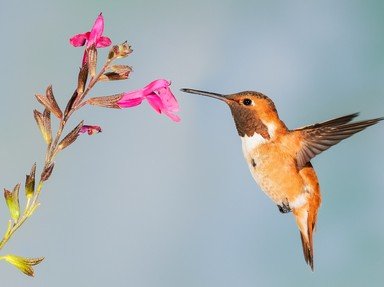Quiz Answer Key and Fun Facts
1. The word "duck" is derived from the Old English word "dūce". What does the word "dūce" mean?
2. Ducks are members of the Anatidae family of animals. Which other birds also belong to this family?
3. Birds have beaks. Ducks have bills. A beak and a bill are considered to be the same thing.
4. A male duck is called a drake. A female duck is simply called a duck or what other name?
5. What are the soft feathers closest to a duck's body called?
6. Adult ducks shed some of their feathers at least once a year. What is the name of this process?
7. Some ducks eat fish.
8. Believe it or not, most ducks do not quack. What word can be used to describe the noise they make?
9. What word is used to describe a duck's feet?
10. What idiom about ducks implies that they are easily captured?
Source: Author
ponycargirl
This quiz was reviewed by FunTrivia editor
NatalieW before going online.
Any errors found in FunTrivia content are routinely corrected through our feedback system.
